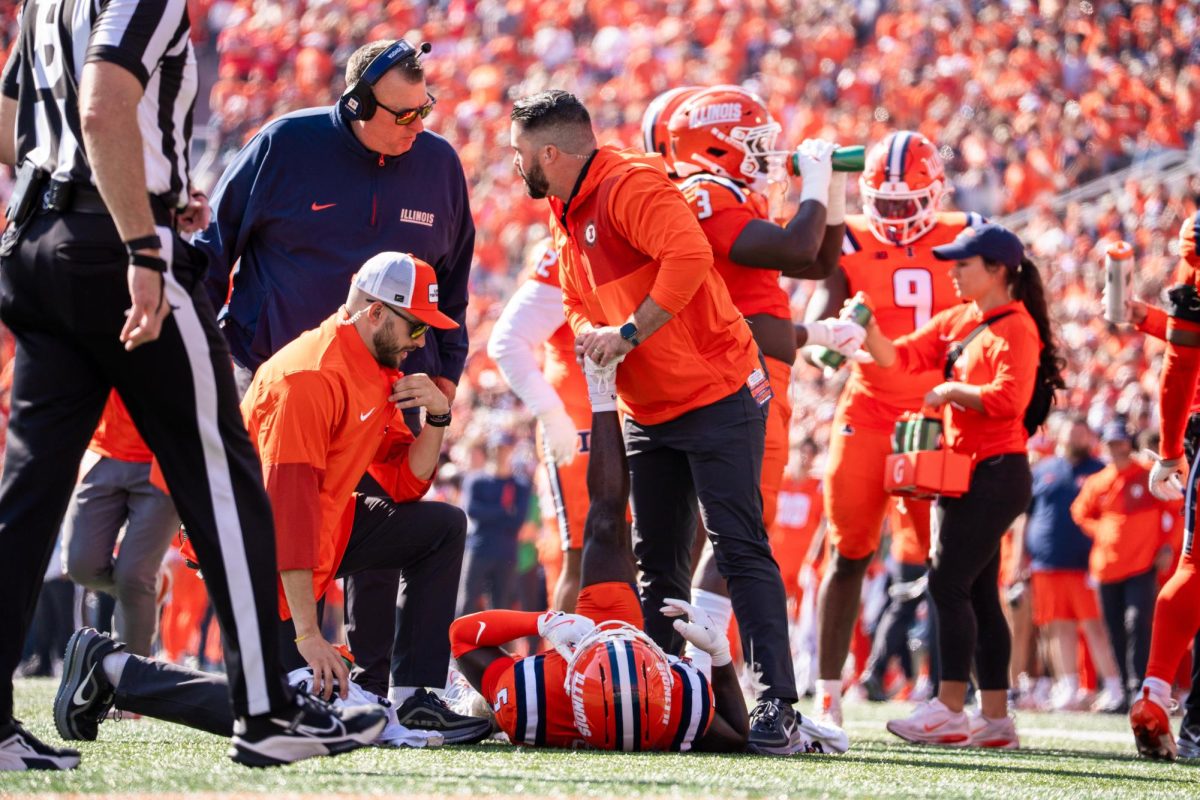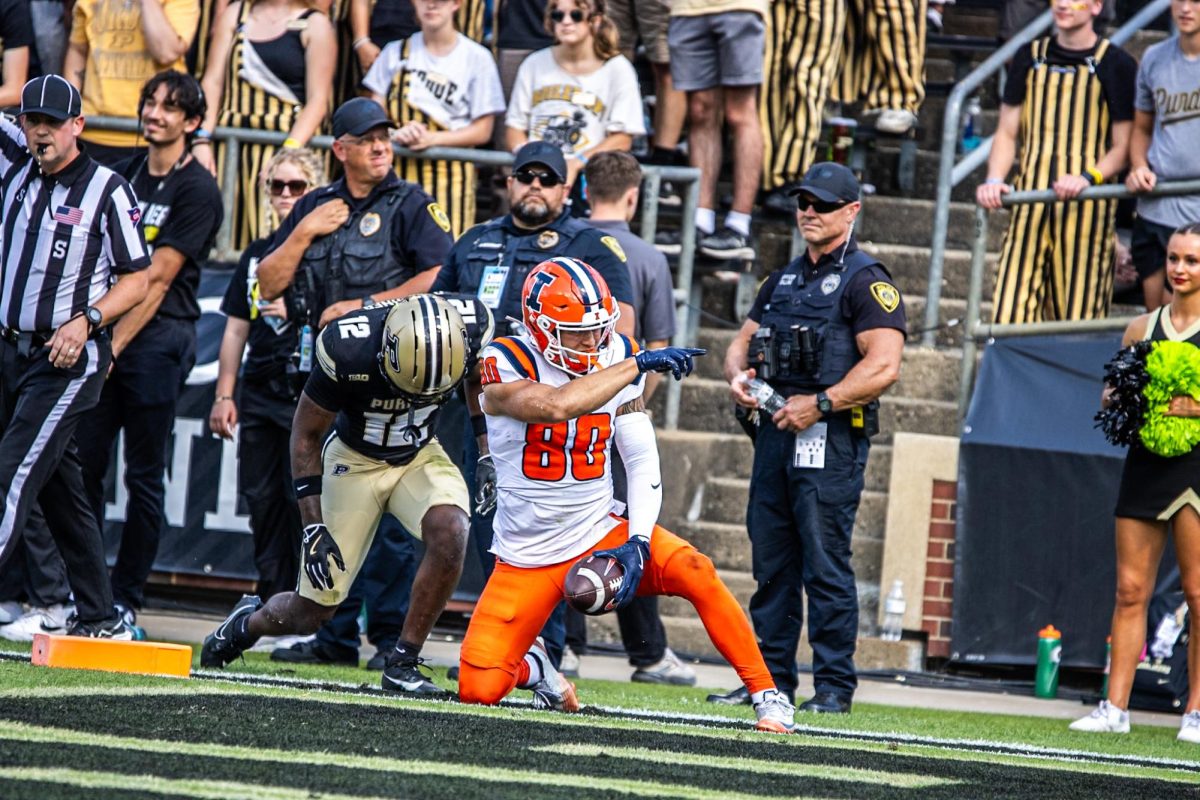A mother is a very important figure in one’s life; she can significantly contribute to who a person will become as an adult. She may teach by doing, by anecdotes, or simply by being there, but each person can learn an a great deal from their mother. These lessons can be positive or negative, and what determines the outcome of a mother’s influence on her child’s life — even into college — can be quite complex.
“It depends,” said Dr. Valerie Minchala, clinical counselor in the University Counseling Center. “Different family dynamics are going to play a different role. Nothing can be said that applies to everyone.”
For Samad Syed, a first year medical student at the College of Medicine, his mother has been an integral part of where he is now.
“Since I was young, I’ve been close to her and she’s been involved in obviously bringing me up, but also urging me to study, that kind of stuff,” Syed said.
He attributes his attendance at the medical school to the example set by his mother.
Get The Daily Illini in your inbox!
“She’s hardworking,” Syed said. “(She) is a role model for me.”
Not only for Syed, but his mother is also a role model for his two siblings. She has been raising the three children alone from their residence in Chicago since the death of Syed’s father a few years back.
Eileen Hou, junior in LAS, also had a notable maternal influence on her life.
“Both my parents are strong role models in my life,” said Hou. “(My mother is) a strong role model because of a lot of the things that she says. I listen and I can see a lot of her advice in my life.”
Hou’s parents both worked in restaurants, greatly limiting her contact with them as their schedules often mandated early morning departures and late night arrivals home. During any given week, Hou estimates she would get to spend time with her parents about once. Despite a sparing schedule of mother-daughter time, her mother still has a profound impact on her day-to-day life in college.
“I listen to (her) more now than when I was younger. All the little things (she taught) me, like don’t go out too late,” Hou said, “work harder in school, things like that.”
After so many years of parental support and guidance, Hou says listening isn’t as intensive as it used to be.
“A lot of times, it’s like second nature,” she said.
Some working mothers don’t have quite as much of an impact, as in the case of Ying Hong, junior in LAS.
“My mom is not quite a role model in my life because my mom was busy with her work when I was little and my grandparents took care of me,” Hong said, adding that her grandmother has come to fill the shoes of a maternal role model.
“My grandmother is very routine and hardworking.” Hong said. “Even though she’s not working (at a job) … she gets up very early and cooks. That teaches me a lot.”
From her grandmother, Hong has learned many valuable things.
“There are some things, such as I cannot be late and I have to do things as soon as possible,” Hong said. “Hard work, I learned it from my grandmother.”
However, the absence of a mother is not the sole defining factor in the outcome of a child. Take, for example, Corie Choi, junior in LAS.
“She left when I was two, so I had other role models,” Choi said.
In the instance of an absent mother, all hope is not lost.
“Either parent — mother or father — is clearly very important and helps shape a lot of who we are,” Minchala said. “But there are other people who can step in and fill some of that role…The fact that the actual mother isn’t there doesn’t mean that there can’t be a mother figure available who can provide some of those pieces.”
This is true in the case of Choi, who detailed those who act as a maternal role model in her life.
“I was raised partly by my grandma and one of my aunts, as well as my godmother,” Choi said. “In some ways, my dad was like my mom, too.”
A father assuming a more traditionally maternal role is not unprecedented.
Minchala confirms that she has worked with clients who have experienced the parental role reversal.
“I think it is just something that happens based off that relationship,” Minchala said.
Besides the role of her father, Choi also remembers many things from her childhood about the other adults in her life.
“They were all definitely really giving to me. For example, my grandma didn’t have a lot of money, but she was very smart with how she spent it on the things we needed,” Choi said. “And I definitely see that — her frugality — in me.”
Choi recalls her adolescent love for certain fashion accessories and how her grandmother worked to accommodate this.
“Because I was a child, she was still able to buy me the little things that she knew that would make me happy,” Choi said. “For example, I know (something) she splurged on — I used to wear these headbands with the earrings attached to them. They were always a little more expensive than the other ones but she somehow managed to find the way to buy me little things like that even though we didn’t have a lot of money. I see myself do that also with my friends. I’m in college so I don’t always have a lot of money, but if it’s their birthday, I’ll find a way to find that extra money to buy them something special.”
All in all, Choi seems to think not having a mother in the traditional sense was not disadvantageous.
“I think I turned out pretty well,” Choi said.
But why are role models during childhood so important?
According to Minchala, much of it has to do with the phenomenon of mirroring the surroundings during the formative years.
“We learn to be who we are based off of what we see in our families and people we’re around,” Minchala said. “It can go one of two ways: one, we’ll mirror what we saw, or two, we’re going to do completely the opposite because we disagree with what they do. That’s not necessarily a conscious decision. We all develop patterns of interacting with other people and over the years … those get pretty rooted. That’s how we’re going to interact with other people because that’s what we know.”
These relational habits can have profound effects on life at the college stage.
“For those who grew up and were able to have good communication with their parents, they’re likely able to have good communication with friends and partners,” Minchala said. “For those who grew up with ‘the only way for me to be heard is to yell’, that’s probably what’s going to happen in their other relationships.”
Regardless of the circumstances leading up to college, familial figures often try to show support to college students.
“I think it can come in different ways, but whether or not the student necessarily perceives it as supportive is different,” Minchala said.
For example, if a parent is worried about their child’s fiscal responsibility, they may opt to set boundaries, declaring they will only pay for certain types of items. While to a parent this may be a symbol of teaching budgeting skills and money management, to a student, this may appear to be a punishment.
“It’s easier for the college student to say ‘Well, I’m the one transitioning. I’m the one becoming an adult,’” Minchala said. “Whereas for parents I think it’s easy to see both, ‘Yes you’re becoming an adult and I don’t like it and I need to figure out how to work with that.’”
All of these factors along the way, from childhood to college, will have some impact on one’s Moms Weekend experience.
“For some, it feels like ‘Well they’re here because they have to be,’” Minchala said. “For others, it’s a weekend of bonding, of ‘Let me show you around, let me really physically show you what I’ve been up to, what all this means.’”
For moms who are alumnae, it can be an opportunity to compare their University experiences to what is going on now.
So whether you’ve treasured your time with your own mother and the things she’s taught you along the way, or you’re still searching for that one who makes you feel special and heard, enjoy your Moms weekend and find a way to appreciate that unique relationship.





